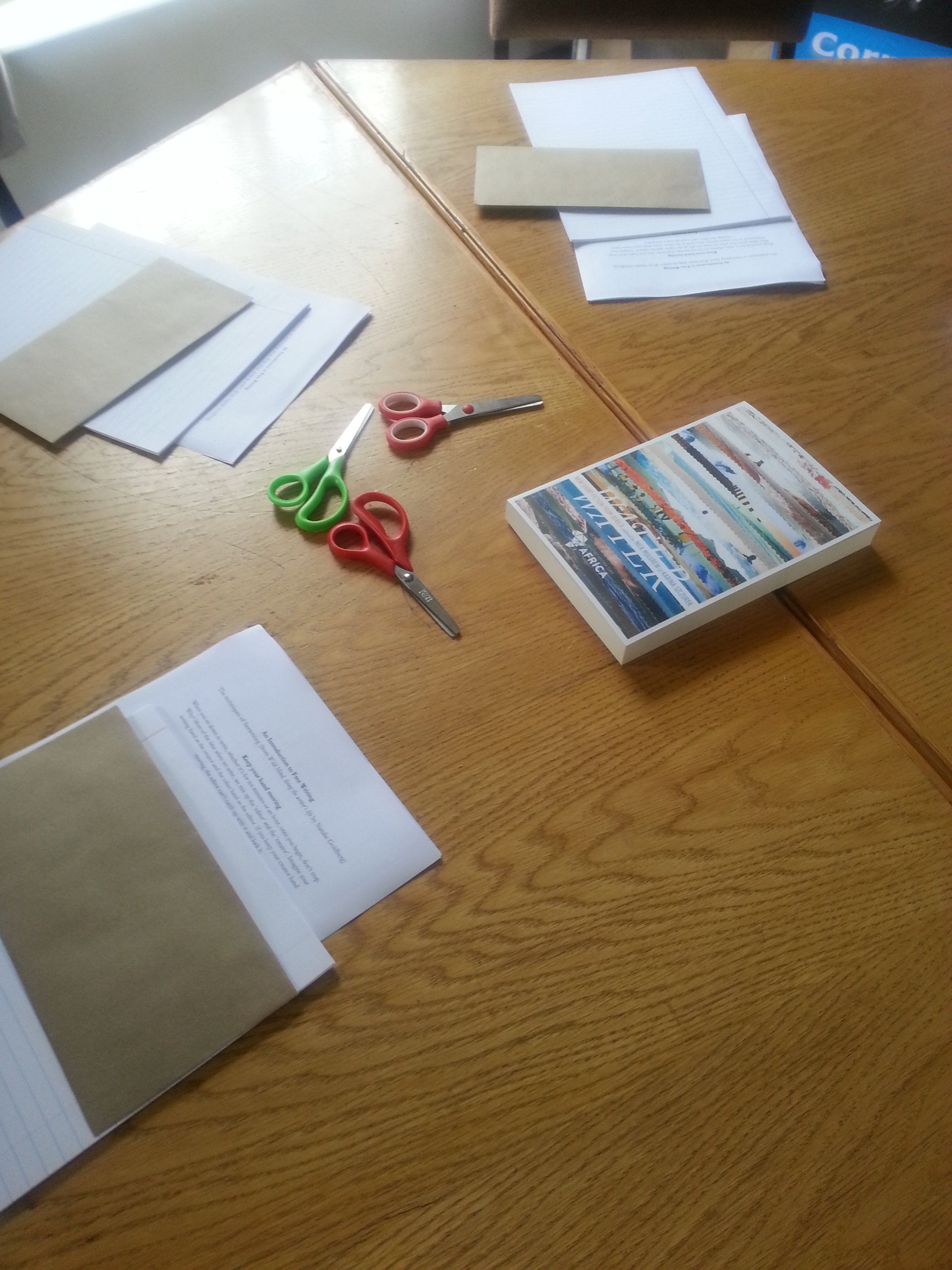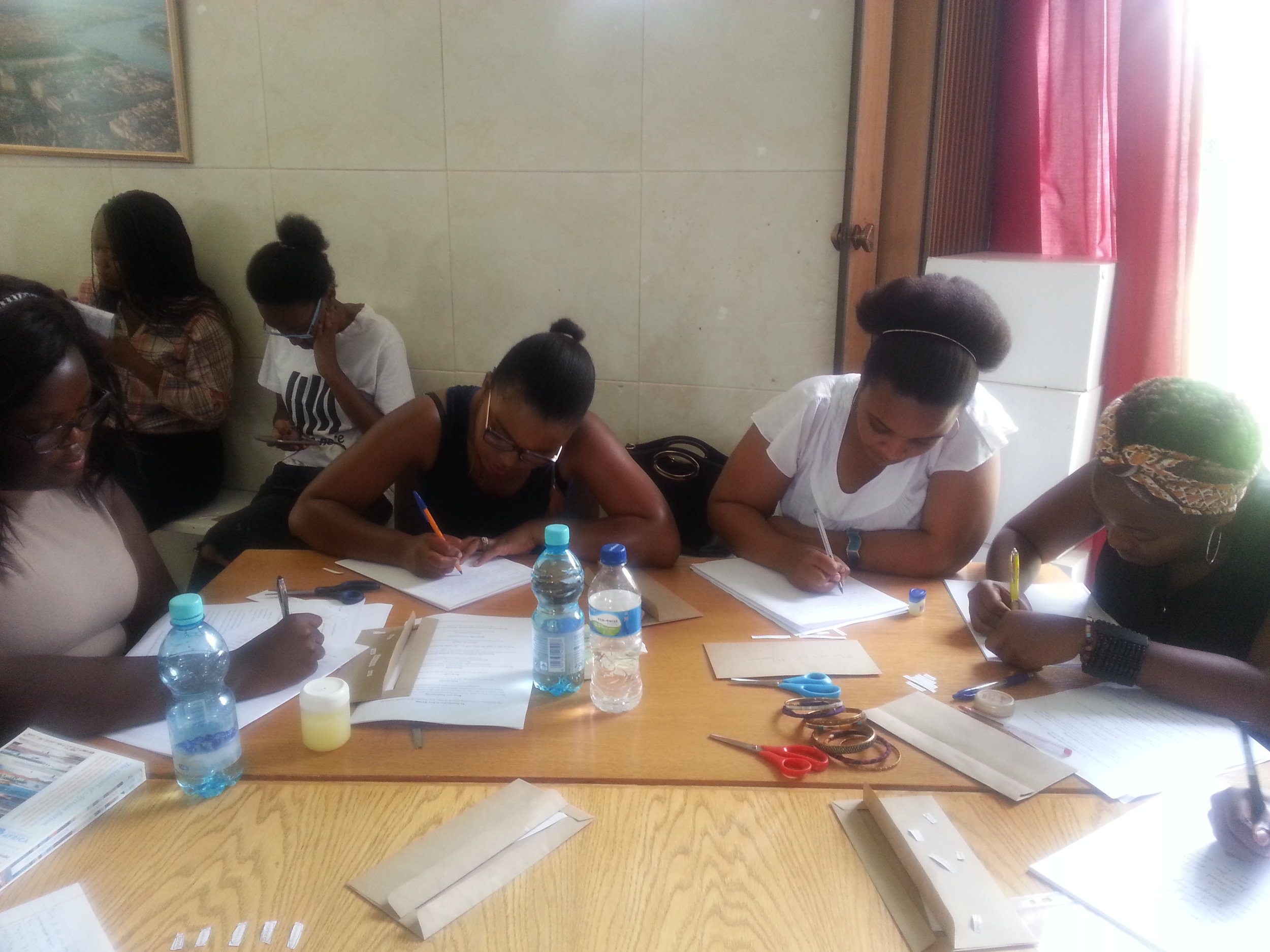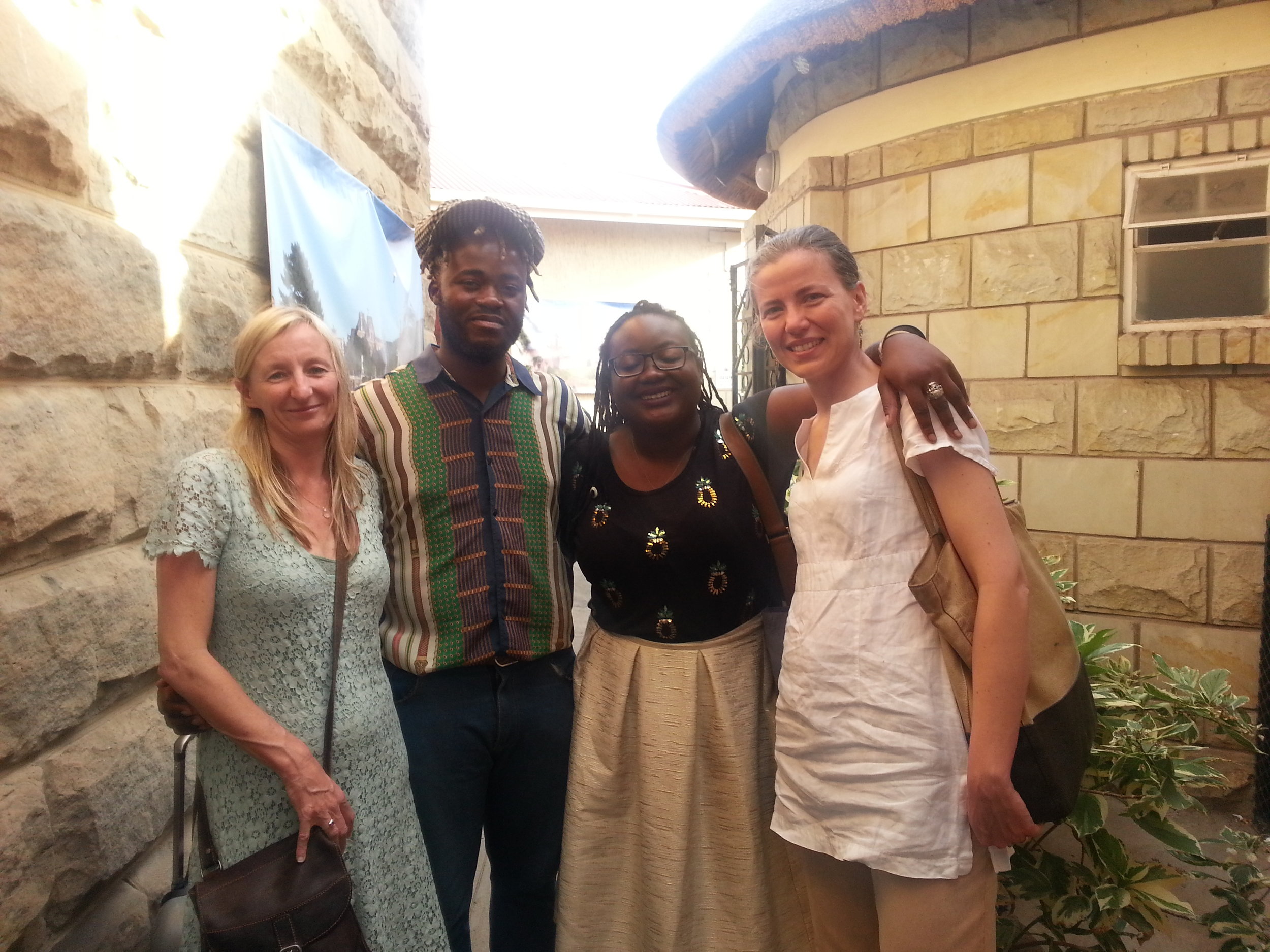Catherine Shepherd, Karina Szczurek and Efemia Chela were proud to represent Short Story Day Africa at the Ba re e ne re Festival at the end of last year. They hosted a Writers’ Bootcamp and were able to explore the burgeoning literary talent hidden in the hills of the Kingdom of Lesotho.
When we heard we were going to Maseru we were thrilled. The three of us quickly realised none of us had ever visited Lesotho and we were curious to find out what kind of stories people were telling there. No matter what people say, wherever there are people, there are stories being told, shared and recorded. One of Short Story Day Africa’s central goals is to network with existing writers and see if we can encourage some new ones to unleash their creativity as well.
The Ba re e ne re Literature Festival was founded by the now late Liepollo Rantekoa in 2011 and her vision for the festival lives on with it attracting more book lovers and writers each year. It also grows as a literary institution, largely due to the passion and organisation of its team - Lineo Segoete, Zachary Rosen, Makate Maieane, Lerato Molisana and all the enthusiastic volunteers. This year's theme was "Reclaiming Your Voice" and the first year Ba re e ne re published an anthology of Basotho writers, Likheleke tsa puo: New writing from Lesotho. We were fortunate to see it launched on the opening night of the festival.
The first thing we noticed when speaking to Basotho writers was how many of them were poets. Poetry is a beloved form in Lesotho. Open mic nights are held in Maseru throughout the year. In fact a boisterous spoken word event, under the stars at Rockville kicked off the 2016 Ba re e ne re Festival. There was also a spirited panel discussion with Joe Machina and Liatile Mohale about the dominance of poetry in Lesotho as opposed to prose fiction as part of the wonderful line-up. As a revolutionary act, one of the panels was held solely in Sesotho which shifted attendees who might otherwise be marginalised, away from the fringes, right to the centre of the debate.
Short Story Day Africa participated in three panels. Efemia contributed to Seeing with Fresh Eyes as well as the panel on Digital Publishing with Joe Machina who has new work coming out soon with Bahati Books.
“Self-publishing is a viable option in an industry that publishes with such immense bias. Queer writers, women and writers of colour struggle to get their books picked up by large publishers. Diversity is a huge problem in the publishing industry and on bookstore shelves. Self-publishing is becoming an emancipatory space in many ways.” - Efemia Chela
“My stories have been published online and it opens up your work to a whole new audience. People can read my stories on their phones.” - Joe Machina, Victims of Greed
Meanwhile, Karina Szczurek, Masande Ntshanga and Ace Moloi, moderated by Zachary Rosen discussed The Importance of Voice.
Photo by Meri Hyöky
“Finding your voice is a process. As you start writing you try to emulate the writers you read. It doesn’t work. There are failures along the way.” - Masande Ntshanga, author of The Reactive
“By changing voice as a writer, I feel I can embody anyone, any time in fiction, no limits” - Karina Szczurek, author of Invisible Others
“I created my voice because I didn’t see it out there. You have to be brave to do that instead of writing for the market. Blackbird Books said there was no way they couldn’t publish this book. Voice sold the book, not endorsements.” - Ace Moloi, author of Holding My Breath
“Other people helped me find my voice. With my forthcoming book, my editor gave me courage to write it in the way I was afraid at first to.” - Karina Szczurek, author of Invisible Others
Photo by Meri Hyöky
“Humility, being guided by instinct and stripping back too much cerebrality helps you find your voice. Language is a reservoir of culture. For The Reactive, I allowed friction to appear in the book between English and IsiXhosa as a literary device.” - Masande Ntshanga, author of The Reactive
“Censorship is a battle when you encounter when expressing your voice. People around you will often ask, ‘What qualifies you to write about this?’’ ” - Ace Moloi, author of Holding My Breath
The inimitable Sindiwe Magona, who judged the Short Story Day Africa Prize in 2016 closed the day with a rousing keynote address:
“At 23, my life was in the toilet. Look at me now, I’m 73. Do I look like I’m in the toilet bowl?” - Sindiwe Magona
““We believe that babies enter the world with their fists clenched because they are holding the gifts God has given them. As a writer you are the prophet of the day. Listen to the voice inside you that says write!””
On the final day, more writers than expected turned up to the workshop - a testament to how enthusiastic the writers in Lesotho are to hone their craft and have their stories heard. Some were shy at first but as the hours passed and they engaged with the exercises, their notebooks filled up with ideas.
By the end a lot of questions about writing had been answered and the writers were swapping ideas and planning their next stories. Judging by the quality of free-writing that was shared, we are certain that more and more great fiction will be coming out of Lesotho soon!
Many thanks to the Ba re e ne re Literature Festival for inviting Short Story Day Africa, and the writers of Lesotho who were a joy to meet.
The Writers Bootcamp was sponsored by the Miles Morland Foundation. Many thanks to Miles, Michela and Mathilda for their continued support.
























